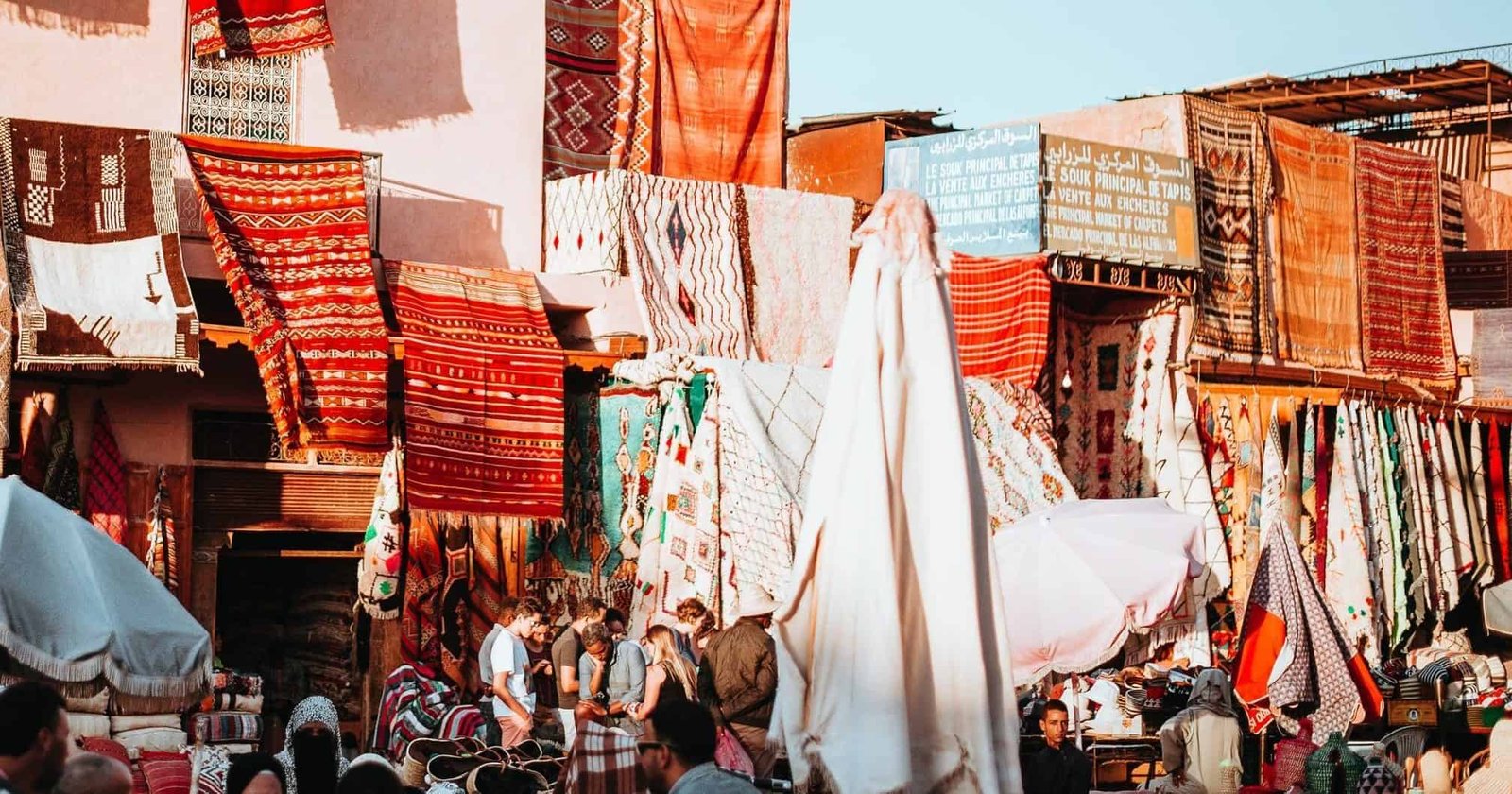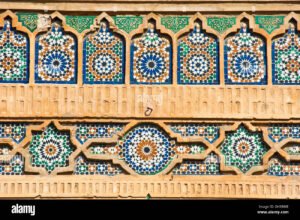Is Morocco Safe for Americans? A Complete Guide for Tourists
Morocco is a country of contrasts, where ancient medinas meet modern cities, bustling souks give way to serene desert landscapes, and luxury resorts sit alongside historic riads. It is a destination that attracts American travelers seeking adventure, cultural immersion, and luxury experiences. Yet, one common question arises before booking a trip: Is Morocco safe for Americans? The short answer is yes—Morocco is a relatively safe country for American tourists. The Moroccan government places a high priority on tourism, and most visitors enjoy a trouble-free stay. However, like any travel destination, there are precautions to take and local customs to understand. This comprehensive guide breaks down everything you need to know about safety in Morocco, including practical travel tips, cultural insights, and advice on how to navigate the country with confidence. Whether you are visiting for business, leisure, or an extended holiday, this guide will help ensure a smooth and enjoyable experience. Let’s talk! Send us a message on WhatsApp, and we’ll be happy to assist you.1. Is Morocco Safe for Americans Tourists? The Reality
Morocco is generally considered safe for American travelers, with relatively low violent crime rates and a strong security presence in tourist areas. The country has a long history of welcoming visitors and has invested in its tourism infrastructure, making it one of the most accessible and tourist-friendly destinations in North Africa.Key Safety Insights:
- Low Violent Crime Rates: Unlike some destinations where violent crime is a significant concern, Morocco experiences relatively low levels of serious crime. Most safety issues involve petty theft or scams.
- Strong Tourism Security: Major cities like Marrakech, Casablanca, and Fes have dedicated police units focused on protecting tourists. Security personnel are present in airports, hotels, and popular attractions.
- Cultural Differences: Morocco is a Muslim-majority country with traditional values. While Americans are welcomed, understanding and respecting local customs enhances the travel experience.
- Safe for Business and Luxury Travelers: Many high-end hotels, private resorts, and business districts cater specifically to international travelers, providing additional layers of security and convenience.
2. Common Travel Scams and How to Avoid Them
Like any popular tourist destination, Morocco has some common scams that visitors should be aware of. Understanding these can help prevent unnecessary stress during your trip.Typical Tourist Scams in Morocco:
- Unlicensed Guides: Unofficial guides may approach travelers offering tours, often leading to overpriced services or commission-based shopping stops. Book guides through hotels or official tourism offices.
- Taxi Fare Overcharging: Some taxi drivers may refuse to use meters or demand inflated prices. Always negotiate fares beforehand or use ride-hailing apps like Careem in cities.
- Street Henna Artists: In popular spots like Jemaa el-Fna in Marrakech, henna artists may grab a tourist’s hand and start drawing before demanding high fees. To avoid this, politely decline unless you seek a professional service.
- False Directions: Some locals may claim a street or attraction is closed and offer to guide you elsewhere, usually to a shop where they earn commission. Politely thank them and verify information with official sources.
- Overpriced Goods in Souks: Vendors in traditional markets may quote high initial prices. Bargaining is expected, so never accept the first price. A good rule of thumb is to counter with half the initial offer.
How to Stay Safe from Scams:
- Use official taxis and transportation apps to avoid being overcharged.
- Book accommodations and tours through reputable sources.
- Learn basic French or Arabic phrases to navigate negotiations more confidently.
- Keep valuables secure in crossbody bags or money belts to deter pickpockets.
- Be assertive and politely decline persistent offers.
3. Solo Female Travel in Morocco: Safety Considerations
Morocco is a safe destination for solo female travelers, but it does require a bit more awareness and preparation compared to some Western destinations. Women travelers may experience occasional street harassment, though this is usually verbal and non-threatening.Safety Tips for Women Traveling Alone:
- Dress Modestly: While Morocco is modern in many ways, dressing conservatively (covering shoulders and knees) helps reduce unwanted attention.
- Be Confident in Public: Walking with purpose and avoiding prolonged eye contact with strangers can help deter unwanted approaches.
- Use Reliable Transportation: Stick to registered taxis, hotel transfers, or pre-arranged private drivers when possible.
- Stay in Safe Areas: Luxury hotels, high-end riads, and private guesthouses offer added security and comfort.
- Avoid Isolated Areas at Night: Stick to well-lit, busy streets when exploring after dark.
4. Is Morocco Safe for Americans? Safe and Luxurious Areas to Stay
Morocco offers a wide range of accommodation options, from opulent five-star resorts to intimate boutique riads. For travelers seeking both security and comfort, certain areas stand out.Best Areas for High-End Travelers:
- Marrakech: Stay in a luxury riad in the Medina for an authentic experience, or opt for Hivernage and Gueliz, which feature high-end hotels and fine dining.
- Casablanca: The Corniche area is perfect for business travelers and luxury seekers, with beachfront hotels and upscale restaurants.
- Essaouira: A laid-back coastal town offering high-end boutique hotels and private beach resorts, ideal for relaxation and security.
- Fes: The historic Medina offers stunning riads, while the Ville Nouvelle provides modern conveniences and international hotels.
- Agadir: Known for its luxury beach resorts, Agadir is one of Morocco’s safest and most tourist-friendly cities.
5. Essential Safety Tips for American Travelers – Is Morocco Safe for Americans?
To make the most of your trip, follow these essential safety tips:- Carry Small Cash & Keep Valuables Secure: Credit cards are not always accepted, especially in markets. Avoid carrying large sums of money.
- Learn Basic Arabic or French: Simple phrases like "Shukran" (thank you) can enhance interactions and help in negotiations.
- Stay Connected: Get a local SIM card or portable Wi-Fi to ensure reliable internet access for navigation and communication.
- Respect Local Customs: Public displays of affection and loud behavior may attract unwanted attention. Adapting to local etiquette helps avoid misunderstandings.
- Avoid Drinking Tap Water: Stick to bottled or filtered water to prevent stomach issues.
6. Final Verdict: Is Morocco Safe for Americans?
Yes, Morocco is safe for American travelers, provided they take standard precautions. The country’s unique blend of history, culture, and luxury makes it a must-visit destination. With heightened tourism security, welcoming locals, and a wealth of high-end travel experiences, Morocco offers an unforgettable journey for those who plan wisely. By staying aware of common scams, respecting local customs, and choosing secure accommodations, American visitors can enjoy Morocco’s enchanting landscapes, world-class cuisine, and rich heritage with peace of mind.Planning Your Trip? Essential Resources:
- Flights: Direct routes from major U.S. cities via Royal Air Maroc.
- Accommodations: High-end stays on Booking.com or Airbnb Luxe.
- Private Tours: Exclusive experiences available through GetYourGuide and Viator.
- Local Transport: Use Careem for reliable rides in major cities.









